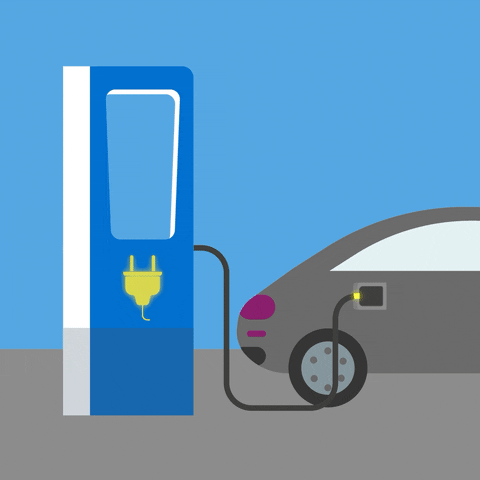- TECHSWU
- Posts
- TECHSWU #62
TECHSWU #62
Welcome to TECHSWU, your go-to destination for all things tech that matter in your daily life!



A recent study by Hub Entertainment Research reveals that consumers are looking for better bundles to simplify their streaming services and reduce the "revolving door churn" phenomenon. The survey found that viewers are overwhelmed by the fragmented landscape of streaming services and are struggling to manage multiple subscriptions.
With the growth of free ad-supported streaming TV (FAST) services and the migration of sports content online, consumers are finding it increasingly difficult to keep track of their viewing options. The study suggests that companies should focus on creating better bundles that cater to the needs of savvy consumers, allowing them to manage their subscriptions more easily.
The researchers also note that the growth of streaming services has led to a rise in "revolving door churn", with viewers adding and dropping services based on specific programs or promotional deals. In order to improve loyalty, companies should develop more streamlined solutions that help consumers manage multiple subscriptions in one place.

Agritech firm Mindsprint, in collaboration with its parent company, is using cutting-edge technology to improve the overall food supply chain. Mindsprint offers digital transformation and cybersecurity services to help customers digitally transform sustainably.
By incorporating various SAP products, such as SAP S/4HANA and SAP SuccessFactors solutions, Mindsprint has been able to adapt quickly to shifting market demands, such as the increased demand for online food ordering due to the COVID-19 pandemic. The company also relies on SAP technology to enhance transparency in the food supply chain, allowing consumers to trace the origins of their food.
Additionally, Mindsprint uses sensors and blockchain technology to track the supply chain of its products and improve resource conservation. SAP's technology has helped Mindsprint optimize its supply chains, save money, and make more sustainable choices.


The pet wearables market is set to experience significant growth, with a projected CAGR of 8% from 2022 to 2032, according to market research firm Fact.MR.
By 2032, the market is expected to reach a valuation of $10.96 billion.
The increasing spending on pet healthcare and biomedical imaging, as well as the expansion of pet insurance companies, are driving factors behind this growth. Pet owners are becoming more aware of the importance of pet health and are seeking cost-effective ways to improve their pets' well-being.
The US market is expected to capture the largest share of the global market in 2022, driven by advanced technology availability and increased veterinary care expenditures. The Chinese market is also expected to grow due to rising pet ownership rates and a growing middle class investing in pet healthcare and wellness.



Siasun Robot and Automation, a leading Chinese robotics company based in Shenyang, is combining artificial intelligence (AI) with robots to create innovative solutions for various sectors. The company aims to integrate AI technology with different types of robots in diverse fields to develop new quality productive forces.
With AI technology, robots can engage in real-time conversational interactions with humans and understand their emotions and expectations. Siasun has expanded its reach beyond traditional manufacturing sectors into industries such as healthcare, eldercare, emergency rescue, and extreme environments.
The company's industrial robots seamlessly integrate into production lines and mimic human-like arm control. It also offers specialized robots for tasks in high-risk environments.
Siasun's commitment to high-quality development exemplifies the seamless integration of technology and industry. The company aims to fully unleash the role of robots in intelligent manufacturing, upgrade traditional industries, and drive high-quality development.



The rise of digital grocery sales has led to increased demand for same-day delivery services. In the US, online grocery sales grew 55% from 2019 to 2020, and by 2022, almost 20% of US shoppers bought groceries online.
Same-day delivery has become a crucial factor in consumer purchasing decisions, with customers valuing reliability and convenience. However, same-day delivery presents challenges for grocers, including logistical complexity, delivery cost efficiency, and customer satisfaction.
To overcome these challenges, grocers are leveraging artificial intelligence (AI) and machine learning (ML) to optimize operations. AI and ML technologies can help manage stock availability, forecast demand and supply, optimize delivery routes, and improve customer satisfaction.
These technologies enable grocers to reduce operational overhead, enhance efficiency, and deliver on-demand orders to meet customer expectations.


Researchers at the University of Tokyo and Alternative Machine have developed a humanoid robot named Alter3 that can understand natural language commands and perform tasks accordingly. The robot utilizes the power of large language models (LLMs) such as GPT-4 to interpret instructions and plan a series of actions.
Alter3 uses various prompt formats to map instructions to robot commands and has the ability to learn from human feedback to improve its performance. The researchers tested the robot on tasks such as taking a selfie, drinking tea, mimicking emotions, and responding to scenarios that require elaborate planning.
Alter3 demonstrates the potential of combining foundation models and robotics systems and shows promise for future advancements in the field of robotics. While there are challenges in creating robots that can perform primitive tasks, projects like Alter3 contribute to the progress of robotics research.
/cdn.vox-cdn.com/uploads/chorus_asset/file/25503688/Boox_Palma_lead.jpeg)
The Boox Palma is a unique device that combines the functionalities of a smartphone and an e-reader. With its smartphone-sized body, Android operating system, and E Ink screen, the Palma offers a range of features that make it a versatile gadget to have.
The reviewer, David Pierce, was initially skeptical about the device but quickly found it to be a pleasant surprise. The Palma's size and Android compatibility allow for hassle-free use, and its E Ink screen offers a comfortable reading experience.
While the Palma can technically download popular apps like TikTok and Instagram, the limitations of the E Ink screen make these experiences less enjoyable, which ultimately encourages users to focus on reading instead. Overall, the Palma has proven to be a convenient and distraction-free device for reading, listening to music, and enjoying podcasts, making it a great companion for those who want to unplug from their smartphones and engage in more intentional digital activities.

The Minister of Municipality in Qatar has inaugurated the first phase of a smart cities solutions project in the country. The project includes the implementation of a smart waste management system, a vehicle management and task distribution system, and a central operations command platform.
These initiatives are part of the ministry's strategy to optimize quality of life, urban modernization, and digital transformation. The goal is to improve the performance, quality, and productivity of public services, while also reducing costs and progressing toward greener and more sustainable cities.
The project will also play a critical role in reducing air pollution and greenhouse gas emissions, as well as lowering waste collection costs. The first phase of the project has been implemented in the Al Wakrah Municipality and will be expanded to other municipalities in subsequent phases.


Artificial General Intelligence (AGI) has the potential to redefine cybersecurity in significant ways. While current AI systems, known as Narrow AI or "weak AI," are designed for specific tasks and operate within a limited scope, AGI aims to possess human-like cognitive abilities, allowing it to understand, learn, and apply knowledge across a wide range of tasks.
AGI could revolutionize various fields by providing more versatile and adaptable solutions.
However, with the benefits of AGI come new security risks.
AGI could enhance cyber-attack capabilities, operate beyond human control, and be exploited by malicious actors. It also raises concerns about data privacy, ethics, and legal challenges.
Organizations can mitigate these risks by implementing robust design and testing protocols, adhering to ethical frameworks, maintaining transparency, creating regulations and oversight mechanisms, fostering interdisciplinary collaboration, conducting risk assessments, and educating stakeholders.
While AGI presents exciting possibilities, it is crucial to address its technical, ethical, and security hurdles and prepare for its advancements through international collaboration and responsible practices.


Wearable technology has revolutionized the way athletes train and compete, and one such technology making a significant impact is Hexoskin. Hexoskin is a smart shirt that monitors an athlete's every movement, heart rate, sleep patterns, and breathing patterns.
The shirt, which feels like a second skin, collects extensive physiological data that can be used to customize training plans, track progress, and prevent injuries. Hexoskin's primary focus is on developing new body-worn health sensors and software for health data analysis.
The company's smart garments are machine-washable and can monitor respiratory, cardiac, and activity functions, as well as sleep quality. With the Hexoskin Connected Health Platform, users have access to tools for reporting and analyzing data, as well as an online dashboard with advanced reporting capabilities.
Hexoskin is popular among sportsmen, health-conscious individuals, and those who want to track their health and fitness. As wearable technology continues to advance, its impact on sports will only continue to grow, helping athletes reach their full potential and maintain peak physical condition.

In today’s digital age, technology has completely revolutionized the entertainment industry, reshaping how we consume and create entertainment. Advancements in streaming services and online platforms have made content more accessible than ever before, allowing audiences to stream their favorite songs or binge-watch entire series with just a few clicks.
Virtual reality (VR), augmented reality (AR), and artificial intelligence (AI) have introduced immersive experiences and personalized recommendations, blurring the line between fiction and reality. Social media platforms have become key players in promoting artists and productions globally, enabling direct interaction with fans on a massive scale.
The rise of social media influencers and user-generated content has also disrupted the traditional advertising model, giving rise to a new wave of digital stars who captivate audiences worldwide. Technological innovations have also revolutionized music, film, and television production, making recording, editing, and creating professional-quality content easier than ever before.
Traditional entertainment companies now face both opportunities and challenges in this digital landscape, but by embracing new technologies, they can carve out their space while preserving their legacy in the industry. As technology continues to evolve, the future of the entertainment business holds endless possibilities, with collaborations between tech giants and entertainment companies likely to lead to even more personalized and immersive user experiences.


The electric vehicle industry is experiencing rapid growth and offers exciting career opportunities in various fields. With the world prioritizing sustainability, electric vehicles have gained popularity and the Indian government has launched a program to subsidize the purchase of electric bikes, buses, and vehicles.
India, with its large population and growing economy, is set to be a leader in the global EV market and aims to have electric vehicles represent 30% of all road traffic by 2023. The skills required in the EV industry include designing, manufacturing, battery production, and developing charging infrastructure.
Smart technologies, cybersecurity, research and development, electrical engineering, automotive engineering, and design and development are some of the career opportunities in this booming industry. With the shift towards sustainable transportation, skilled professionals in EV manufacturing, battery technology, software development, and infrastructure development are in high demand.
The EV industry presents a promising career landscape that will shape the future of transportation and environmental sustainability.



